Featured Scholars in Graduate Student Programs
The Tobin Project works with over 70 graduate students in 10 academic disciplines and 15 universities across the country. The Democracy & Markets and National Security forum and fellowship series focus on students in Cambridge, MA and New Haven, CT, as the monthly forums are held in these cities. The following scholars represent a sample of those involved in the Tobin Project's forum and fellowship programs.
Nathan Black
MIT, Ph.D. CANDIDATE IN POLITICAL SCIENCE
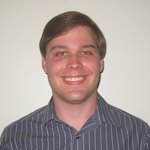
Nathan Black has been working with the Tobin Project since 2008, when he spent the summer at Tobin conducting an evaluation of neo-conservative conceptions of U.S. national security. Since then, Nathan has attended Tobin conferences as a student participant, has co-led seminars and programs for graduate students in security studies, and has received grants to support his research and dissertation work.
“I may be the first person whose dissertation was born in the Tobin conference room,” Nathan says. At a 2009 Graduate Student Forum in National Security, Nathan was debating with another student the justifications for U.S. intervention in faraway civil conflicts. Policymakers have often based intervention decisions, Nathan realized, on the possibility that conflicts would spread across borders. And yet there was very little scholarly work on the subject. Nathan’s dissertation, a theory of how and why civil conflicts spread, grew out of these early conversations, and has been further supported through research grants and periodic consultations with the Tobin Project. “I see my career as bringing even-handed, well-informed knowledge to D.C.,” Nathan says, “and Tobin has stood behind me on that.”
Ruth Anne French-Hodson
YALE LAW SCHOOL, J.D. CANDIDATE
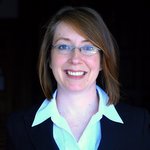 With her interest in regulation and the structures that allow implementation to succeed or fail, Ruth Anne French-Hodson was drawn first to the Tobin Project’s graduate student programs and then to its Government & Markets initiative. In 2011, Ruth Anne received a Democracy & Market fellowship in support of her work on “Agency Structure and Industry Influence: A Case Study of the Consumer Financial Protection Bureau.” Given the connection between her research and Tobin’s Preventing Capture initiative, Ruth Anne has participated in small discussion meetings with Tobin staff, policymakers, and scholar contributors to the forthcoming volume.
With her interest in regulation and the structures that allow implementation to succeed or fail, Ruth Anne French-Hodson was drawn first to the Tobin Project’s graduate student programs and then to its Government & Markets initiative. In 2011, Ruth Anne received a Democracy & Market fellowship in support of her work on “Agency Structure and Industry Influence: A Case Study of the Consumer Financial Protection Bureau.” Given the connection between her research and Tobin’s Preventing Capture initiative, Ruth Anne has participated in small discussion meetings with Tobin staff, policymakers, and scholar contributors to the forthcoming volume.
“In law and graduate school,” Ruth Anne notes, “you think you can’t contribute much because you are a student. [At the Capture meeting], I realized that I knew a lot and I could discuss the subject at a small-group level even with scholars very senior to me.” Some of the meeting presentations focused on case studies, which helped Ruth Anne think about the structure of her own work, which tends to be more theoretical. “The intergenerational and interdisciplinary aspect of the meetings is so interesting. It’s not just about distinguished names. It’s about mixing ideas and expertise.”
Joo-A Julia Lee
HARVARD KENNEDY SCHOOL, Ph.D. CANDIDATE IN PUBLIC POLICY
 In 2011, Julia received a Democracy & Markets fellowship from the Tobin Project for her work on “The Role of Perceived Meritocracy in Justification of Inequality.” For fellowship recipients in the Cambridge and New Haven areas, the Tobin Project facilitates a forum series in which grantees share early-stage research with an interdisciplinary group of co-grantees and other interested graduate students. Julia, an experimental social scientist by training, is conducting research that applies to, and finds roots in, many other fields of study. “I’m an experimentalist,” she says, “and because of my focus on establishing empirical support for my work, sometimes I feel like I am missing some of the important theoretical insights from different disciplines and methodological approaches. Before coming to Tobin meetings, I was only thinking about the psychology and behavioral economics perspectives on these questions. It was really exciting to speak with these students and to learn more about both the philosophical and policy-oriented way of examining the problem of inequality.”
In 2011, Julia received a Democracy & Markets fellowship from the Tobin Project for her work on “The Role of Perceived Meritocracy in Justification of Inequality.” For fellowship recipients in the Cambridge and New Haven areas, the Tobin Project facilitates a forum series in which grantees share early-stage research with an interdisciplinary group of co-grantees and other interested graduate students. Julia, an experimental social scientist by training, is conducting research that applies to, and finds roots in, many other fields of study. “I’m an experimentalist,” she says, “and because of my focus on establishing empirical support for my work, sometimes I feel like I am missing some of the important theoretical insights from different disciplines and methodological approaches. Before coming to Tobin meetings, I was only thinking about the psychology and behavioral economics perspectives on these questions. It was really exciting to speak with these students and to learn more about both the philosophical and policy-oriented way of examining the problem of inequality.”
After the introductory meeting, Julia read through papers suggested by the other students, delving into economics, sociology, and political science, and incorporated questions raised at the forum into her research study as new mechanisms to test. She adds, “since my primary interest has been on how individuals make decisions, and learning about this area, I initially spent less time thinking about the broader implications of my research for public policy. Here, I felt like I found people who were interested in the same ideas as I am."
Chris Miller
YALE, Ph.D. CANDIDATE IN HISTORY
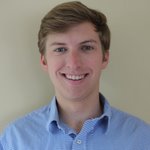 Chris Miller, whose research interests lie at the intersection between economic policy and domestic politics, has been involved in the Tobin Project’s graduate student programming since 2010. Participating in early seminars for both the National Security and Democracy & Markets programs, Chris now chairs the Democracy & Markets Graduate Student Forum and Fellowship program in New Haven, CT. With Chris's leadership, this program has been able to recruit students with a diversity of perspectives and facilitate a common conversation about how markets influence democratic institutions and how democracy shapes market structures.
Chris Miller, whose research interests lie at the intersection between economic policy and domestic politics, has been involved in the Tobin Project’s graduate student programming since 2010. Participating in early seminars for both the National Security and Democracy & Markets programs, Chris now chairs the Democracy & Markets Graduate Student Forum and Fellowship program in New Haven, CT. With Chris's leadership, this program has been able to recruit students with a diversity of perspectives and facilitate a common conversation about how markets influence democratic institutions and how democracy shapes market structures.
“Some of the most cutting-edge work that is being done, the work that will shape how the next generation thinks,” Chris says, “is being done by graduate students.” Speaking about his experience in the Tobin Project graduate student forums, Chris notes that “The other students broaden my horizon about what is being done in social science. Regularly spending time with these people gives me familiarity with how other disciplines think and great opportunities to learn the perspectives of other disciplines on the questions I think about.”
Sabeel Rahman
HARVARD UNIVERSITY, J.D. CANDIDATE; Ph.D. CANDIDATE IN GOVERNMENT
 Sabeel Rahman, whose research interests focus broadly on democratic political economy, has played an integral role in developing and advancing the Tobin Project’s graduate student programming and Government & Markets initiative. After working at the Tobin Project during the summer of 2009, in which he prepared research on “The Glass-Steagall Act and the Shifting Discourse of Regulatory Reform,” Sabeel became involved with the Government & Markets program. Attending multiple working group meetings and larger conferences at a time when his own research focus was still formative, Sabeel says that his relationship with Tobin “came at a really critical time – it helped sharpen and anchor my broad interests.” A leader in the Tobin Project’s graduate student community, Sabeel has helped to structure and lead the Democracy & Markets forum series, has recruited excellent student participants, and has presented several research projects for feedback from the group. His substantive contributions to Tobin Project research efforts and his advisory role on the programming side have been invaluable to these initiatives.
Sabeel Rahman, whose research interests focus broadly on democratic political economy, has played an integral role in developing and advancing the Tobin Project’s graduate student programming and Government & Markets initiative. After working at the Tobin Project during the summer of 2009, in which he prepared research on “The Glass-Steagall Act and the Shifting Discourse of Regulatory Reform,” Sabeel became involved with the Government & Markets program. Attending multiple working group meetings and larger conferences at a time when his own research focus was still formative, Sabeel says that his relationship with Tobin “came at a really critical time – it helped sharpen and anchor my broad interests.” A leader in the Tobin Project’s graduate student community, Sabeel has helped to structure and lead the Democracy & Markets forum series, has recruited excellent student participants, and has presented several research projects for feedback from the group. His substantive contributions to Tobin Project research efforts and his advisory role on the programming side have been invaluable to these initiatives.
“It’s really the conversations that I think are most important,” Sabeel says. “For me as a young graduate student, getting that conversation going and knowing that I had interlocutors was really critical.” As a student whose work often extends beyond disciplinary lines, seeing examples of similar work and talking with established scholars interested in related ideas has offered Sabeel “a huge psychological and mental benefit in terms of community building and inspiration.” Sabeel says, “Without a critical community to talk and share insights with, it is really hard to come up with research ideas and to know what is worth working on.”
Mira Rapp-Hooper
COLUMBIA UNIVERSITY, Ph.D. CANDIDATE IN POLITICAL SCIENCE
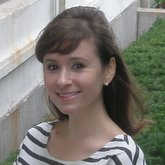
Mira Rapp-Hooper, whose research interests coalesce around nuclear weapons and nuclear nonproliferation, attended her first Tobin Project National Security conference in 2010. At the conference, which focused on “Power Through its Prudent Use: Strategies and Instruments for U.S. National Security,” Mira presented an early-stage research paper with her co-author, Frank Gavin (University of Texas-Austin, Political Science).
Mira and Frank had begun discussing the ideas behind their paper in the summer of 2010 and took the winter Tobin Project conference as an opportunity to put the ideas on paper. The article that resulted, entitled “U.S. Preventive War Thinking in the Nuclear Age – A Reassessment,” included a broad range of ideas. “We knew that we hadn’t determined what the core of the project would be,” Mira says. “Barry Posen in particular made a comment that got at the core, pushed us to focus as we went forward on that particular issue – of U.S. preventive strikes against emerging nuclear powers.” Of the overall conference experience, Mira says: “It was a terrific opportunity – some of the best scholars and feedback. Tobin is a fantastic resource and vetting area for ideas that are exciting but yet to be distilled.”
Tyler Williams
MIT, Ph.D. CANDIDATE IN ECONOMICS
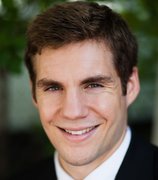 A participant in the Tobin Project’s Democracy & Markets Graduate Student Forums, Tyler Williams researches program design and individual behavior in education and health initiatives. Employing an interdisciplinary approach, Tyler incorporates insights from psychology and sociology into his research in order to better understand individual decisionmaking and social contexts. “The interdisciplinary aspect of Tobin’s work is really helpful for me,” Tyler says. “I think it’s a valuable approach – to include multiple perspectives.”
A participant in the Tobin Project’s Democracy & Markets Graduate Student Forums, Tyler Williams researches program design and individual behavior in education and health initiatives. Employing an interdisciplinary approach, Tyler incorporates insights from psychology and sociology into his research in order to better understand individual decisionmaking and social contexts. “The interdisciplinary aspect of Tobin’s work is really helpful for me,” Tyler says. “I think it’s a valuable approach – to include multiple perspectives.”
Adding the perspective of a policymaker to the interdisciplinary group of students in the Democracy & Markets forum, the Tobin Project invited Dr. David Polakoff (Chief Medical Officer of MassHealth) to attend an April 2011 meeting and respond to Tyler’s research on a recent MassHealth initiative. “Looking as a researcher on the outside at this program,” Tyler says, “it’s hard for me to know why things are designed a certain way or why they went with the program they did. Dr. Polakoff explained a lot of this reasoning to me, and his insight shifted my thinking from an evaluation point of view. It helped me refocus my analysis.” In addition to Dr. Polakoff’s ideas, Tyler was able to get targeted, interdisciplinary responses from the other graduate students in the group. “It’s been really great for me to interact with people in other disciplines and see how research is done there,” Tyler says. “The participants gave me feedback that challenged and helped push my research in a smarter direction.”

